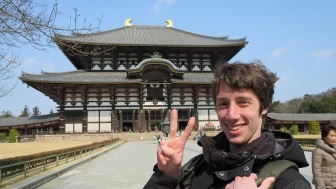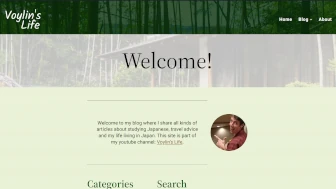Learning a new language, especially Japanese, can be quite a challenge with many ups and downs. Been doing it for the past 8 years. With sharing my mistakes whilst studying Japanese I hope I can stop people from making the same mistakes as I did. If I avoided those mistakes I could have been a lot more fluent and be at a much higher level by now. I made a ton of mistakes but these are probably my five biggest mistakes. ^^”
Relying too much on apps/books
Apps and books can be helpful, and you do need them to learn a language, however don’t focus too much on them as one specific book/app shouldn’t be your end-game resource. A variety of tools should be used to study with. Only using Anki won’t help you to read long texts fluently. Only using books won’t teach you correct pronunciation.
Always remember, there is not a single resource which can teach you everything. This is such a common mistake which people keep falling into (myself included when I was starting out). Using only books and apps will lead to a lack of immersion in the language as well, which is important if you actually want to be able to say that you know a language. Watch some Japanese shows, listen to Japanese music, watch some documentaries about Japan which will help to understand the culture better, and engage in conversations whenever possible.
Being stuck in one topic
All be it Kanji, Vocab, Grammar, Listening, … Don’t get stuck focusing on just one aspect of the language as this won’t help you in the long run anyway. You need to create more variation in your study schedule, don’t only focus on the part which you like to learn about because doing that will also lead to losing interest in that aspect faster making you less motivated to actually mastering the language.
It’s tempting to focus on a particular area of Japanese, I myself was stuck on only focusing on Kanji as I found it more fun to do and I felt that I was good at it. However, this can be counterproductive as I said before and I lost a lot of progress by doing so. Aim for a balanced study plan, incorporating all aspects of the language: grammar, vocabulary, kanji, listening, and speaking.
Be consistent
Consistency is important to create a good and healthy habit for learning a language. Making studying into a daily habit has so many advantages as you are less likely to take breaks and if you end up taking a break, you are more likely to get back into the habit without any problems.
Learning a language is a long journey. Consistency is key. If you only study every now and then, your knowledge will fade quickly and things you learn won’t stick as well compared to when you’d study every day. Aim for creating a regular study schedule, even if you can only study for a short period each day, every bit of progress is still progress. Just keep your learning momentum going. Consistent practice, even for 30 minutes a day, can lead to significant progress over time making you also feel a lot more motivated in the long run by not having lost too much knowledge from having taken long breaks.
Use your mouth
While passive skills like reading and listening are important, speaking is still one of the most important parts of learning a language and probably the most rewarding part of learning a language. It allows you to connect with people in a better way, you can express yourself, and it also helps to experience the language in a much better way. This really is my biggest mistake of all and me being to hesitant to talk and not having enough confidence has been the biggest reason for not improving as much over the eight years of studying.
Don’t be afraid to start speaking early on, even if you make mistakes as Japanese people are very helpful and appreciate it when people are learning a language which is only being spoken in one country. The more you practice, the more confident you will become.
Immerse yourself
If you really want to make fast progress, stop listening to music in your own language, stop watching tv/movies/series in your own language. Hearing and seeing the language you are learning more on random moments during the day will help you a lot in learning a new language as even though you may not understand everything, you are still making connections in your mind with words and sounds.
This sound kind of strange, I know. But there is a reason that people are quicker to learn languages in the country of where those languages are spoken. Immersion is crucial for making language learning stick. Expose yourself to Japanese as much as possible, especially when you are not in the country of where the language is spoken. Remember, immersion is about more than just passively consuming.









